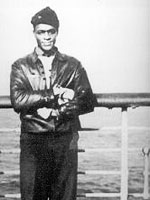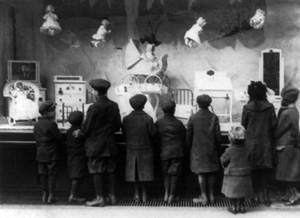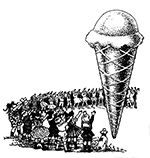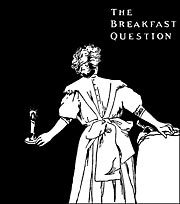A Hoax Provokes Folks: Why Lie?
Back to the beginning of the country, the American media has run stories that were widely regarded as true, but were eventually revealed as hoaxes. A few of them were innocuous. Some were not. Were the following hoaxes really printed?
1. March 12, 1782: Benjamin Franklin, in France during the Revolutionary War to make mischief for the British, composes and prints up a page of an imaginary newspaper, the Boston Independent Chronicle. The newspaper carries a letter supposedly from Captain Gerrish of the New England Militia that describes in detail a package of more than 1,000 dried scalps captured from Seneca Indians paid by the British to terrorize men, women, and children among the American colonists. The package was to be shipped to England for the gratified amusement of King George. In a letter to a friend, Franklin says of his story: "The Form may perhaps not be genuine, but the Substance is truth."
Yes
2. August 21, 1835: The New York Sun begins a series of articles describing Royal Astronomer Sir John Herschel's discoveries of sentient beings living on the Moon through a giant telescope. The ladies of Springfield, Massachusetts subscribe to a fund "to send missionaries to the benighted luminary."
Yes
3. April 13, 1844: The New York Sun publishes Edgar Allan Poe's (spurious) account of a crossing of the Atlantic Ocean by balloon. The demand for the paper is so great that crowds block the Sun office throughout the day waiting to buy copies, and Poe is unable to get a copy for himself.
Yes
4. September 1844: During James Polk's presidential campaign, the Whig-run Ithaca Chronicle publishes a letter, claiming to quote directly from a Baron von Roorback's Tour through the Western and Southern States in 1836, about a slave caravan. It includes a description of 40 slaves among the manacled purchased from Polk, whose initials had been branded into their shoulders. Thurlow Weed eagerly copies it into his Albany Evening Journal and it becomes a major issue in the campaign, until it is shown to be a hoax. The passage was created by doctoring a passage from Excursion Through the Slave States, written by George W. Featherstonhaugh and published in London in 1844.
Yes
5. October 4, 1862: Samuel Clemens, then a writer for the Virginia City, Nevada, Territorial Enterprise, publishes an article about the discovery of a sitting, petrified man in the mountains, of which "every limb and feature" was still perfect, except turned into stone. The story is widely believed and reprinted in other papers around the country.
Yes
6. March 2, 1864: Union cavalry officer Colonel Ulric Dahlgren leads a raid against Richmond, whose main purpose is to free prisoners of war being held by the Confederacy at Belle Isle. Dahlgren is shot and killed during the unsuccessful raid. Southern soldiers find documents on his body that outline other objectives of the raid, including orders for Dahlgren to burn and destroy the city and to kill Confederate President Jefferson Davis and his cabinet, actions clearly outside the conventional rules of war. The Richmond Examiner publishes the text of the documents and says in an enraged editorial that the North has decided to begin conducting the war "under the Black Flag."
Yes
7. May 18, 1864: The New York World and the New York Journal of Commerce print what they believe to be an Associated Press story about a proclamation from President Lincoln ordering a huge new conscription of soldiers. This causes speculators to sell stocks and buy gold on fear that the Civil War will continue far longer than was expected. It is quickly revealed that Joseph Howard, the city editor of the Brooklyn Eagle, forged the story so that he could buy gold before the story came out and sell it at the end of the day.
Yes
8. April 1, 1874: New York Herald reporter Joseph Clarke and editor Thomas Connery panic New Yorkers by publishing an article they have concocted about a mass escape of animals from the Central Park Zoo. In the story, animals roamed the city looking for prey of the species homo sapiens, causing "terrible scenes of mutilation." Cartoonist Thomas Nast later references the hoax in a political cartoon he draws for Harper's Magazine, in which he depicts the Democrats as an ass and the Republicans as an elephant, creating the parties' political icons.
Yes
9. August 16, 1924: During Prohibition, New York Herald reporter Sanford Jarrell publishes a story about a "mysterious joy-boat of 15,000 tons which was lying about 15 miles off Fire Island, aboard which Long Island millionaires and pretty playthings of the idle rich were drinking intoxicating beverages and disporting themselves with the utmost abandon by night." The day after the article is published, the Coast Guard is assigned to hunt down the vessel. When the Herald editors discover the story is a hoax, they fire Jarrell.
Yes
10. November 20, 1967: U.S. News and World Report claims that it can confirm the authenticity of The Report from Iron Mountain, a book recently published by Dial Press. The book purported to be the text of a leaked report issued by a secret study group commissioned by the Johnson Administration. The group concluded that a lasting peace, if it were ever achieved, would not be in the best economic interests of society, and that the government should foster a war mentality by scaring people with exaggerated threats of terrestrial, and even extraterrestrial, foes and impending environmental disasters. It also recommended that the government heighten inter-ethnic tensions within the country and even re-institute slavery. Author Leonard Lewis confessed in 1972 that he wrote the book, but defended it as a useful stimulus to public debate on the Vietnam War. Lewis claimed that the 1971 leaked publication of the "Pentagon Papers," which were real, demonstrated that the government is capable of actions that are as outrageous as anything in his "satire."
Yes



 a pushcart ice cream vendor in New York, in 1896, who also, perhaps, invented the ice cream sandwich by putting a slice of ice cream between waffle squares cut from a sheet. Other sources say the ice cream cone has its origins in the mists of history, but was first described in Mrs. Marshall's Cookery Book, whose author, Agnes Marshall, published it in London in 1888. Still others discern a woman licking an ice cream cone in an 1807 picturing fashionable customers eating at the Frascati café in Paris, although this is uncertain because cone-shaped ice cream bowls were not unknown at the time.
a pushcart ice cream vendor in New York, in 1896, who also, perhaps, invented the ice cream sandwich by putting a slice of ice cream between waffle squares cut from a sheet. Other sources say the ice cream cone has its origins in the mists of history, but was first described in Mrs. Marshall's Cookery Book, whose author, Agnes Marshall, published it in London in 1888. Still others discern a woman licking an ice cream cone in an 1807 picturing fashionable customers eating at the Frascati café in Paris, although this is uncertain because cone-shaped ice cream bowls were not unknown at the time.

 False. Moses Fleetwood Walker, an Oberlin College star, played for one season, in 1884, with the Toledo team of the American Association, before he was forced out the following year because of racism.
False. Moses Fleetwood Walker, an Oberlin College star, played for one season, in 1884, with the Toledo team of the American Association, before he was forced out the following year because of racism. False. Robinson, although generally regarded as an excellent player, was not seen as even the best player on his team, the Kansas City Monarchs. Rickey signed him because of a combination of qualities--not only his proven and potential talent and skill at the game, but also his personal integrity and his likely strength (as Rickey saw it) at withstanding the abuse that Rickey thought Robinson would face on and off the field for breaking the color barrier in major league baseball.
False. Robinson, although generally regarded as an excellent player, was not seen as even the best player on his team, the Kansas City Monarchs. Rickey signed him because of a combination of qualities--not only his proven and potential talent and skill at the game, but also his personal integrity and his likely strength (as Rickey saw it) at withstanding the abuse that Rickey thought Robinson would face on and off the field for breaking the color barrier in major league baseball.


 Sylvester Graham (1794-1851) was the most renowned food reformer of the 19th century. He wrote The Philosophy of Sacred History Considered in Relation to Human Aliment and the Wines of Scripture. Graham was known by the nickname of "Doctor Sawdust" because of his promotion of the virtues of bread made with whole-wheat ("Graham") flour. His followers set up "Graham hotels," like small, provisional utopias, where guests following Graham's dietary regimen could board with like-minded progressive reformers.
Sylvester Graham (1794-1851) was the most renowned food reformer of the 19th century. He wrote The Philosophy of Sacred History Considered in Relation to Human Aliment and the Wines of Scripture. Graham was known by the nickname of "Doctor Sawdust" because of his promotion of the virtues of bread made with whole-wheat ("Graham") flour. His followers set up "Graham hotels," like small, provisional utopias, where guests following Graham's dietary regimen could board with like-minded progressive reformers. Business partners Henry D. Seymour and William Heston of Ravenna, Ohio, registered the Quaker Man as a trademark in 1877 (the first trademark registered for a breakfast cereal). They made Quaker Oats, steel-cut oats packaged in 2-pound paper boxes with cooking directions on the outside, an innovation for the time. The name "Quaker Oats" would seem to tie the product to the owners' religious views, but Seymour said he chose it simply because he found an encyclopedia article on Quakers and decided that the qualities described there—integrity, honesty, and purity—were ones he wanted to link to his company's product. Heston credited himself with the name, saying that while walking on the streets of Cincinnati, he had seen a picture of Quaker William Penn, whose clothes and character inspired him to choose the name. Nevertheless, either way, it couldn't have hurt to conjure the figure of a religious Nonconformist, waving a scroll inscribed "Pure," on the package of a breakfast cereal. Potential customers would have associated it with the other Progressive health food items, especially wholegrain breakfast foods, that were being urged by food reformers descended from Protestant Nonconformists and Inner Light advocates.
Business partners Henry D. Seymour and William Heston of Ravenna, Ohio, registered the Quaker Man as a trademark in 1877 (the first trademark registered for a breakfast cereal). They made Quaker Oats, steel-cut oats packaged in 2-pound paper boxes with cooking directions on the outside, an innovation for the time. The name "Quaker Oats" would seem to tie the product to the owners' religious views, but Seymour said he chose it simply because he found an encyclopedia article on Quakers and decided that the qualities described there—integrity, honesty, and purity—were ones he wanted to link to his company's product. Heston credited himself with the name, saying that while walking on the streets of Cincinnati, he had seen a picture of Quaker William Penn, whose clothes and character inspired him to choose the name. Nevertheless, either way, it couldn't have hurt to conjure the figure of a religious Nonconformist, waving a scroll inscribed "Pure," on the package of a breakfast cereal. Potential customers would have associated it with the other Progressive health food items, especially wholegrain breakfast foods, that were being urged by food reformers descended from Protestant Nonconformists and Inner Light advocates. Ellen Gould White (1827-1915), the Seventh-Day Adventist prophetess, had a vision in 1863 in which the relation of physical health to spiritual health, the body to the spirit, was revealed to her. She set up the Western Health Reform Institute in Battle Creek, as well as other sanitariums. She published the pamphlet, Health, or How to Live. Don't trust the appetite, she said, which has become perverted, or the dietary customs of society. She counseled eating grains, nuts, fruit, and whole-grain flour.
Ellen Gould White (1827-1915), the Seventh-Day Adventist prophetess, had a vision in 1863 in which the relation of physical health to spiritual health, the body to the spirit, was revealed to her. She set up the Western Health Reform Institute in Battle Creek, as well as other sanitariums. She published the pamphlet, Health, or How to Live. Don't trust the appetite, she said, which has become perverted, or the dietary customs of society. She counseled eating grains, nuts, fruit, and whole-grain flour. In 1898, they founded the Sanitas Food Company, to sell health food via mail order. In 1906, Will established the Battle Creek Toasted Corn Flakes Company. When J. H. sold to W. K. his interest in the corn flakes company, J. H. used the proceeds in 1911 to create the influential Race Betterment Foundation, in order to prepare the way for a super race of "new men," and to set up a "eugenic registry" that evaluated couples for breeding based on their genetic pedigrees in order to stop the propagation of "defectives."
In 1898, they founded the Sanitas Food Company, to sell health food via mail order. In 1906, Will established the Battle Creek Toasted Corn Flakes Company. When J. H. sold to W. K. his interest in the corn flakes company, J. H. used the proceeds in 1911 to create the influential Race Betterment Foundation, in order to prepare the way for a super race of "new men," and to set up a "eugenic registry" that evaluated couples for breeding based on their genetic pedigrees in order to stop the propagation of "defectives."  Danforth then contacted "Dr. Everett Ralston," whose real name was Albert Webster Edgerly (aka Edmund Shaftsbury or Shaftesbury) (1852-1926), a debarred lawyer, con man, cult leader, self-appointed health expert, and elocution teacher, who had founded perhaps the world's first multilevel marketing scheme. This was the Ralston Health Club, a Washington, D.C.-based, national membership health products club, with 800,000 members in 1898.The Club required its members to pay large amounts for a series of books that told the secret of how to live for 200 years by collecting and preserving in the body the occult force of "Glame" and learning to speak his invented "Adam-Man tongue." Danforth secured "Dr. Ralston's" endorsement of Purina Wheat, and added his name to Danforth's company—Ralston-Purina. Danforth's cereal became Ralston Health Club Breakfast Food, then Ralston Purina Wheat, then Instant Ralston.
Danforth then contacted "Dr. Everett Ralston," whose real name was Albert Webster Edgerly (aka Edmund Shaftsbury or Shaftesbury) (1852-1926), a debarred lawyer, con man, cult leader, self-appointed health expert, and elocution teacher, who had founded perhaps the world's first multilevel marketing scheme. This was the Ralston Health Club, a Washington, D.C.-based, national membership health products club, with 800,000 members in 1898.The Club required its members to pay large amounts for a series of books that told the secret of how to live for 200 years by collecting and preserving in the body the occult force of "Glame" and learning to speak his invented "Adam-Man tongue." Danforth secured "Dr. Ralston's" endorsement of Purina Wheat, and added his name to Danforth's company—Ralston-Purina. Danforth's cereal became Ralston Health Club Breakfast Food, then Ralston Purina Wheat, then Instant Ralston. 